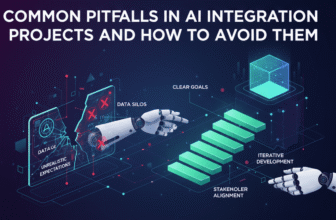
In the rapidly evolving landscape of artificial intelligence (AI), data management is a critical factor influencing the success and scalability of AI models. The increasing volume of data, expected to reach 175 zettabytes by 2025, presents a formidable challenge. Traditional methods of data management often fall short in terms of efficiency, security, and transparency. Enter smart contracts: a groundbreaking solution poised to revolutionize AI data management. This article delves into the potential of smart contracts to transform AI data management, highlighting key benefits, practical applications, and the role of platforms like OpenLedger.
What are Smart Contracts?
Smart contracts are self-executing contracts with the terms of the agreement directly written into code. These contracts automatically enforce and execute the terms when predefined conditions are met, without the need for intermediaries. Originating from blockchain technology, smart contracts ensure transparency, security, and immutability, making them ideal for complex and data-intensive operations.
Benefits of Smart Contracts in AI Data Management
1. Enhanced Security
Smart contracts offer robust security features. Since they operate on blockchain networks, data integrity and immutability are guaranteed. This is crucial for AI data management, where the authenticity and reliability of data are paramount. With the increasing prevalence of data breaches—affecting over 4.1 billion records in the first half of 2019 alone—smart contracts provide a secure alternative.
2. Improved Efficiency
Traditional data management systems often involve cumbersome processes and intermediaries, leading to delays and inefficiencies. Smart contracts streamline these processes by automating tasks such as data validation, access control, and payment settlements. This automation reduces the time and resources required, enabling faster and more efficient data management.
3. Greater Transparency
Transparency in data management is essential for building trust and ensuring compliance. Smart contracts inherently provide transparency as all transactions and operations are recorded on the blockchain, visible to all authorized parties. This transparency helps in auditing and verifying data management processes, thus fostering trust among stakeholders.
4. Cost Reduction
By eliminating intermediaries and automating processes, smart contracts significantly reduce operational costs. Traditional systems often incur high costs due to manual interventions, legal fees, and third-party services. Smart contracts minimize these expenses, making AI data management more cost-effective.
Practical Applications of Smart Contracts in AI Data Management
Data Sharing and Access Control
One of the significant challenges in AI data management is ensuring secure and controlled access to data. Smart contracts can be used to define and enforce access permissions, ensuring that only authorized entities can access specific data sets. This is particularly useful in collaborative environments where multiple parties need access to shared data.
Data Monetization
Smart contracts facilitate seamless data monetization by automating payment processes. Data providers can specify the terms of data usage, and smart contracts can ensure that payments are made automatically once the conditions are met. This not only simplifies the monetization process but also ensures that data providers are fairly compensated.
Data Integrity and Validation
Maintaining the integrity and validity of data is crucial for AI models. Smart contracts can be programmed to verify the authenticity and accuracy of data before it is used for training AI models. This helps in preventing the use of corrupted or fraudulent data, thus enhancing the reliability of AI outputs.
Challenges and Future Prospects
While the benefits of smart contracts are substantial, there are challenges to their widespread adoption. These include technical complexities, legal and regulatory uncertainties, and the need for standardization. Overcoming these challenges requires concerted efforts from industry stakeholders, policymakers, and technology developers.
The future of smart contracts in AI data management looks promising. With ongoing advancements in blockchain technology and increasing recognition of the importance of secure and efficient data management, smart contracts are poised to become a standard in the industry. As more organizations adopt this technology, we can expect to see significant improvements in the scalability, reliability, and transparency of AI systems.
Conclusion
Smart contracts offer a transformative solution for AI data management, addressing key challenges such as security, efficiency, and transparency. By automating and securing data management processes, smart contracts can significantly enhance the reliability and scalability of AI systems. Platforms like OpenLedger are at the forefront of this revolution, showcasing the practical benefits and potential of integrating smart contracts into AI data management. As the technology matures, we can anticipate a future where smart contracts become integral to the AI ecosystem, driving innovation and trust in AI applications.







